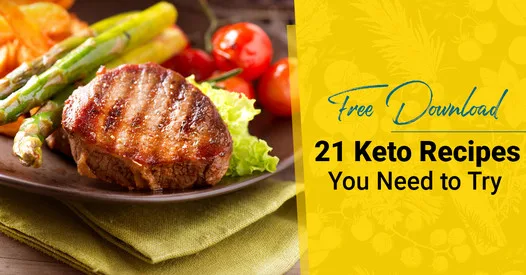Your fitness journey is unique, and your diet should be too. In the quest for muscle retention, two diets frequently go head-to-head: the ketogenic, or “keto” diet, and a traditional high protein diet. This battle of nutritional titans often leaves fitness enthusiasts and health-conscious individuals scratching their heads in confusion. In this comprehensive article, we’re about to navigate together through the claims, counterclaims and everything in between related to keto and high protein diets for muscle retention. Hold on to your gym shoes, it’s about to get scientific!
Understanding Keto Diet
When you flip through a health or fitness magazine, you’ll probably stumble upon discussions that dive into the keto diet. You might ask, what is a Keto diet?
Definition of the Keto diet
The ketogenic, or “keto,” diet is a low-carb, high-fat eating plan. It’s named after the process your body enters when it runs out of the glucose it usually feeds on. At this point, it begins burning fat for fuel instead. It’s all about getting your body into a state known as “ketosis”.
Core principles of the Keto Diet
The guiding principles of the Keto diet are to cut back significantly on carbohydrates, consume a moderate amount of protein, and ramp up your fat intake. The idea is to get your calories mainly from fats and proteins and very little from carbohydrates. You cut back most on the carbs that are easy to digest, like sugar, soda, and pastries.
The process of Ketosis
This brings us to the process of ketosis, which is essentially the ultimate goal of adhering to a Keto diet. When you begin to consume fewer carbs, your body needs to find an optimal energy source, and voila, you start to burn fat rendering your body into a state of ketosis. It’s a metabolic state where fat, not glucose, becomes your body’s primary energy source.
Understanding High Protein Diet
The High Protein Diet is another popular dieting trend. But what exactly is it, and how does it work?
Definition of High Protein Diet
A high protein diet, as the name clearly suggests, focuses on a higher consumption of protein. You aim to get over 20% of your total daily caloric intake from protein sources.
Different sources of proteins
Arming yourself with knowledge of various sources of proteins is crucial when it comes to a high protein diet. Proteins can be obtained from both plant and animal sources. While animal proteins like chicken, eggs, or seafood are common choices, plant-based options like beans, whole grains, and nuts also pack a protein punch.
The process of Muscle protein synthesis
High protein diet is often synonymous with muscle growth due to the role of protein in muscle protein synthesis (MPS). MPS is a naturally occurring process in which protein is produced to repair muscle damage caused by intense exercise. It reshapes and strengthens your muscles, and having a protein-rich diet can maximally stimulate this muscle protein synthesis.

Key Differences Between Keto and High Protein Diet
Both keto and high protein diets aim at promoting weight loss and improving health, but they are fundamentally different.
Carb intake: Keto Diet vs High Protein Diet
In terms of carbohydrate intake, the contrast is stark. A keto diet requires you to limit your carbs to an extremely low level, getting into a state of ketosis. On the other hand, high protein diets do not necessarily restrict carbohydrate intake significantly.
Protein consumption: Keto Diet vs High Protein Diet
As for protein intake, it isn’t the main focus in a keto diet, whereas it takes center stage in a high protein diet. Keto dieters consume moderate amounts of protein, while those on a high protein diet, you guessed it, consume large amounts.
Fat intake: Keto Diet vs High Protein Diet
Lastly, keto is high in fat while a high protein diet is not. A person following a keto diet gets most of their calories from fats, while a high protein dieter gets most of theirs from protein.
Role of Keto Diet in Muscle Retention
Keto diet does more than just help in weight loss; it also aids in muscle retention.
How Keto diet aids in muscle retention
By providing a constant supply of ketones, a keto diet can help preserve muscle tissue when you’re shedding those pounds. Your body gets busy burning fat for fuel and leaves your muscle tissue intact.
Effect of Ketosis on muscle mass
During ketosis, not only does the body burn fat, but it also helps starve the processes that break down muscle. Hence, a greater muscle mass can be maintained.
Studies supporting Keto diet for muscle retention
Many studies have found that the combination of aerobic or resistance exercise with a ketogenic diet can boost muscle mass and increase endurance. So if you’re worried about losing your gains while on keto, fear not, ketosis could be your secret weapon!

Role of High Protein Diet in Muscle Retention
Is protein really the key to muscle retention? Let’s delve into this.
How high protein diet aids in muscle retention
It’s no secret that protein is the building block of muscles. A high protein diet, combined with resistance training, can increase muscle size and strength.
The importance of protein in muscle growth and repair
When you train hard, you cause damage to your muscle fibers. Consuming enough protein is critical for rebuilding these fibers – it’s this process of repair and re-growth that results in muscle gain.
Studies supporting High protein diet for muscle retention
Research has verified that high-protein diets are effective for gaining muscle. A study published in the American Journal of Clinical Nutrition found that higher-protein diets help increase muscle mass and promote fat loss.
Challenges in Muscle Retention with Keto Diet
As great as the keto diet sounds, it does come with its challenges in muscle retention.
Understanding muscle loss in Keto diet
During your initial days on a keto diet, when your body is adjusting to a drastic reduction in carbohydrate intake, you may experience some muscle loss.
Factors contributing to muscle loss on Keto diet
Not consuming enough protein or calories overall can contribute to muscle loss while on the keto diet. Also, if you exercise regularly but aren’t refueling accordingly or hydrating properly, you could be at risk of muscle loss.
How to prevent muscle loss on Keto diet
To guard against muscle wasting on a keto diet, ensure you are taking in enough protein. Lifting weights or doing some other form of resistance exercise can also help prevent muscle loss.
Challenges in Muscle Retention with High Protein Diet
There can be potential pitfalls to watch out for when adopting a high protein diet too.
Understanding potential issues with too much protein intake
A high-protein diet may warrant some caution. Some experts suggest that high-protein diets may be harmful to individuals with pre-existing kidney disease, and heavy protein consumption might increase the risk of osteoporosis.
Effects of excessive protein on kidney health
High protein intake places a significant strain on the kidneys, which not only could accelerate any pre-existing kidney condition but might lead to damage for those with healthy kidneys.
How to maintain muscle mass with a balanced High protein diet
Strive to spread out your protein intake evenly throughout the day, including plant-based proteins as well. Ensure you’re consuming adequate calories from carbs and fats, as they’re essential for overall health as well.
Comparing Keto Diet and High Protein Diet for Athletes
For athletes, choosing between the keto diet and a high-protein diet will depend on the physical demands of their training regimen and personal health goals.
Energy production in Keto diet versus high protein diet
Keto provides sustained energy through burning fats, but it might not be sufficient for high-intensity activities. Meanwhile, a high-protein diet, which typically includes more carbs, can provide more readily accessible energy.
Muscle recovery and growth in Keto diet versus high-protein diet
Keto diets do not focus on protein, which is the building block for muscle recovery and growth. In contrast, a high protein diet can accelerate recovery after intense workouts and potentially enhance muscle growth.
Endurance and performance in Keto diet versus high protein diet
While some studies suggest that the keto diet may help endurance athletes, high-intensity athletes may benefit from the quick energy release provided by the carbs typically included in a high protein diet.
Professional Opinions on Keto Vs High Protein Diet for Muscle Retention
The verdict of health professionals on these diets can be mixed.
Health and fitness experts opinions
Fitness experts generally lean toward a balanced diet, but many point out the benefits of keto and high protein diets for certain fitness goals. Different diets work for different people, and an individual’s goals and health should be the cornerstone in deciding one’s diet.
Medical practitioners opinions
Medical professionals often express caution about keto because of possible side effects like nutrient deficiencies or kidney damage. They commonly recommend high-protein diets but also caution against potential kidney effects from consuming too much protein.
Dietitians and nutritionists opinions
Nutritionists typically advocate balance and moderation in all things. While they recognize the potential benefits of both keto and high protein diets, they also underscore the significance of following a diet that is well-rounded, balanced, and sustainable in the long run.
Conclusion: Keto Vs High Protein Diet for Muscle Retention
Navigating through the diet world can be complex. However, whether you choose keto or high protein for muscle retention, the decisions should align with your individual health goals.
Benefits and drawbacks of Keto diet for muscle retention
The keto diet can help in maintaining lean body mass while burning fat, but initial muscle loss and the risk of nutrient deficiency can be potential drawbacks.
Benefits and drawbacks of High protein diet for muscle retention
High protein diets promote muscle growth and repair due to increased protein synthesis, but the risk of kidney damage and the potential for gaining weight if not managed carefully can be downsides.
Making an informed decision: Keto Vs High Protein Diet
In the end, the decision between these diets boils down to your personal goals, lifestyle, and health condition. What might work wonders for one person may be entirely wrong for another. Connecting with a healthcare provider can provide clarity and ensure you make a choice that suits you best. Both diets have their virtues and pitfalls. The key is to find what works best for you and your body.

